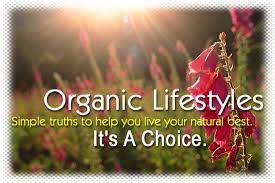Environmentally friendly lifestyle Trully Means
Being eco-friendly is about extra than just moving light bulbs or purchase a new car, or even installing solar panels. While it might contain these things, it doesn’t need to. Also, it includes a more major have a significant impact on in mentality than can be accomplished with such little changes. Being harmless to the ecosystem is monitoring the effect every one of your activities have on The planet.
A perfect example of this is a simple trip to the grocery store. A man, let’s call him Mike, buys a new Prius car. It has great gas mileage, so it must be eco-friendly, right? Maybe, but we’ll talk more about that later. Mike gets into his new Prius and drives three blocks to the grocery store. There he buys a box of cereal, some packaged chicken from the butcher’s block, and a pack of frozen vegetables. She checks out, collects the bags, and goes home.
So, what did Mike do wrong? We’ll start with driving. You don’t need to drive three blocks unless you live in Anchorage and it’s the middle of winter. No matter how efficient the gasoline mileage in your car is, you don’t need it for that kind of distance, walking is much better for the environment. In addition, most public transport systems are still a better option than even the most efficient car.
Next, we’ll look at the things Mike bought in the store. The box of cereal contains not one but two packages, one of which, made of plastic, is produced from fossil fuels. You know, Mike should have bought cereal in bulk; things that only have one package? If Mike did, he would reduce his influence on earth. The same goes for his packaged chicken. If Mike got the chicken from the butcher and not the shelf, his chicken would be wrapped in a paper wrap, instead of polystyrene and plastic. Paper is not only a renewable raw material; but polystyrene takes ages to decompose completely in the landfill. This gives a double negative!
Finally, we come to the frozen vegetables; there is also a washing list for them. The frozen vegetables had to be factory-processed and cut to size with industrial machinery. They were then frozen instantly and packed … in plastic. Fresh vegetable lowers the energy costs of freezing and processing vegetables, and the packaging is much lighter than the frozen variety. And then there was money! Mike gathered his bags instead of bringing reusable bags to the store with him, wasting even more plastic or paper. Either way, the list of things Mike, ostentatiously environmentally conscious, did that weren’t eco-friendly is long and dingy.
If you really want to become an eco-conscious person, you need to do more than just flashy, noticeable things. You must do little things that most people will never notice properly. After all, it’s not about you, it’s not about making sure everyone knows how good you are. It’s about the land; and doing what is right for the earth as a person dependent on its resources for life.
